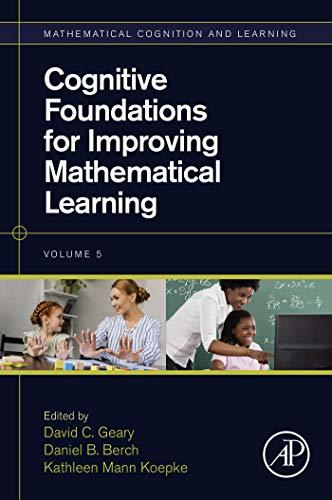What do you think?
Rate this book


The fifth volume in the Mathematical Cognition and Learning series focuses on informal learning environments and other parental influences on numerical cognitive development and formal instructional interventions for improving mathematics learning and performance. The chapters cover the use of numerical play and games for improving foundational number knowledge as well as school math performance, the link between early math abilities and the approximate number system, and how families can help improve the early development of math skills. The book goes on to examine learning trajectories in early mathematics, the role of mathematical language in acquiring numeracy skills, evidence-based assessments of early math skills, approaches for intensifying early mathematics interventions, the use of analogies in mathematics instruction, schema-based diagrams for teaching ratios and proportions, the role of cognitive processes in treating mathematical learning difficulties, and addresses issues associated with intervention fadeout.
Identifies the relative influence of school and family on math learning Discusses the efficacy of numerical play for improvement in math Features learning trajectories in math Examines the role of math language in numeracy skills Includes assessments of math skills Explores the role of cognition in treating math-based learning difficulties348 pages, Kindle Edition
Published January 3, 2019